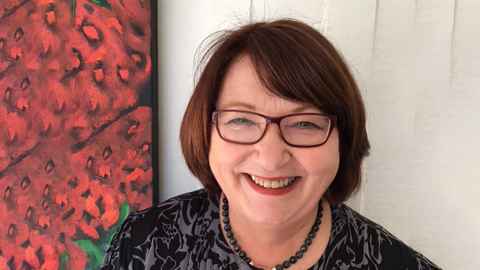More support for new social workers vital, say experts
4 December 2019
Some graduate social workers feel 'thrown in the deep end' and more support is crucial, according to a new framework for the profession launched last week in Auckland.

More robust educational preparation and support for Aotearoa’s newly-qualified social workers is the key recommendation of the Professional Capabilities Framework (PCF). The framework is the result of a three-year collaborative project by a group of social work experts from the Universities of Auckland, Canterbury, Massey and Otago, and the Open Polytechnic.
Public criticisms of the social work curriculum were the impetus for the new approach, which offers a clearer pathway of support for social workers before and after qualification, as well as strengthening newly-qualified social workers' preparedness to practise.
Project co-leader, Professor Liz Beddoe from the University of Auckland’s Faculty of Education and Social Work, says one of the strongest findings was that the development of confident and capable social work practitioners requires strong partnerships between schools of social work and major employers and professional bodies.
“And this will need investment from government to ensure high quality social services,” says Professor Beddoe. “Our study shows that the provision of comprehensive induction and regular professional supervision of newly-qualified social workers is patchy. Some graduate social workers are well supported, but others feel ‘thrown in at the deep end’. ”
The provision of comprehensive induction and regular professional supervision of newly-qualified social workers is patchy.
The project’s findings are relevant and well-timed to contribute to a review of social work education by the New Zealand Qualifications Authority (NZQA) on behalf of Minister Tracey Martin.
As well as the need for the establishment of an assessed and supported first year of practice for newly-qualified graduates, improvements to the quality of agency-based fieldwork education and a higher level of knowledge in key curriculum areas like mental health and law have also come out of the group’s findings.
In terms of immediate impact, the Professional Capabilities Framework is being considered by the Social Workers Registration Board as a way of enhancing their existing Core Competence Standards; and the Aotearoa New Zealand Association of Social Workers has incorporated the seven core professional values identified by the team – Rangatiratanga, Manaakitanga, Whanaungatanga, Aroha, Kotahitanga, Mātātoa and Wairuatanga – into a rewrite of its code of ethics.
The five separate frameworks reviewed as part of the research include: two from Aotearoa New Zealand (Ministerial Group on Family Violence and Sexual Violence, 2017; (Social Workers Registration Board, 2015), one from Canada (Canadian Council of Social Work Regulators, 2012), one from the United Kingdom (British Association of Social Workers, 2017) and one from the United States of America (Council on Social Work Education, 2015).
The project was supported with partnership funding from Ako Aotearoa through a National Projects Fund grant.
Media contact
Julianne Evans | Media adviser
Mob: 027 562 5868
Email: julianne.evans@auckland.ac.nz